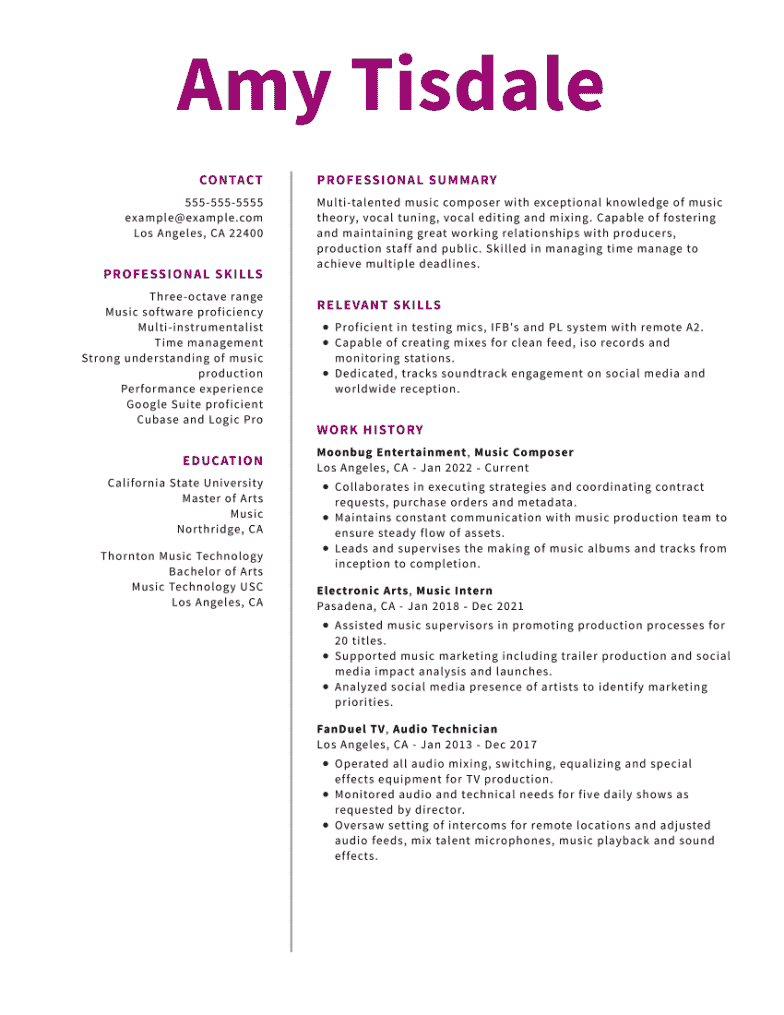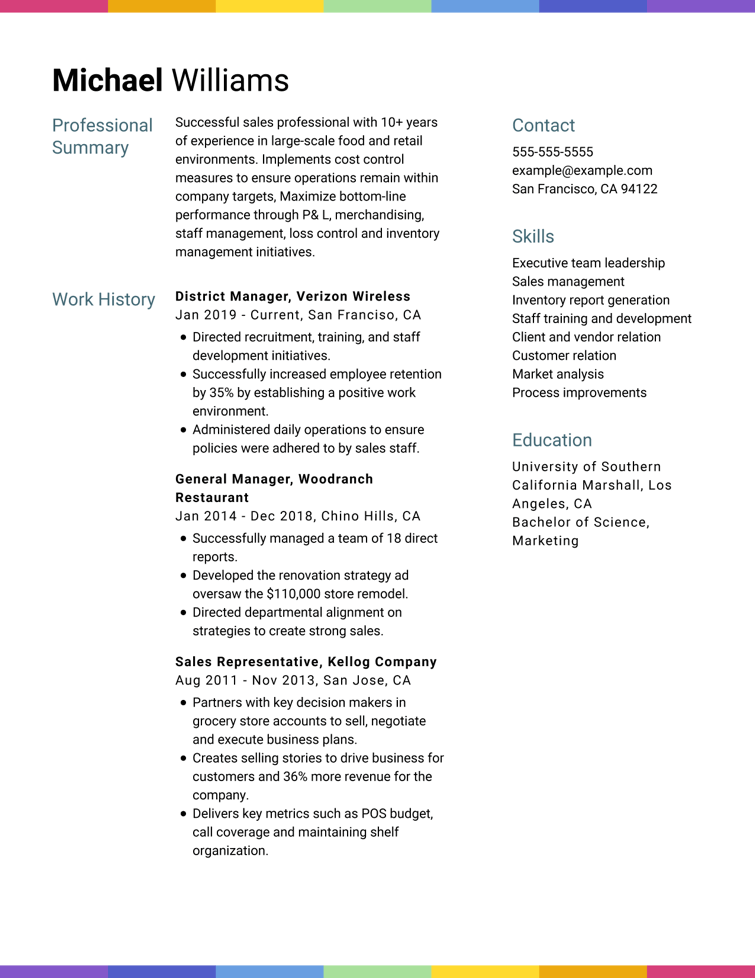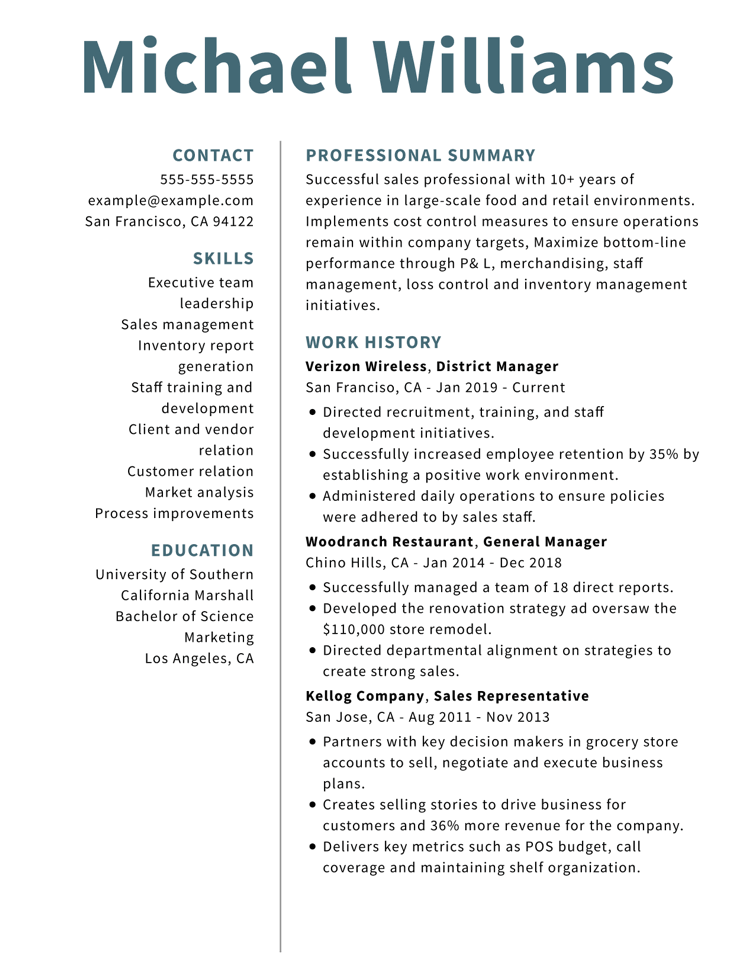Great Music CV Examples to Help You Succeed
Looking to start or progress your career in music? Your CV could be the best tool you have. Here’s what you need to know about writing a music CV.
Looking to start or progress your career in music? Your CV could be the best tool you have. Here’s what you need to know about writing a music CV.





OUR USERS HAVE BEEN HIRED BY



There are few industries as competitive as the music industry. Whether you want to work with a symphony orchestra or you want to be a music teacher, the best jobs don’t always go to the best musicians. Why? Because sometimes, these talented individuals don’t have a CV that really shows off their skills. The right perfect CV can supercharge your career in music wherever you see that going. Here’s our tips for creating one.
There are many who can benefit from a good music CV, including those in these professions:
Any job which requires the creation or performance of music as a major facet of its duties can use a great music CV.
Work experience
Yes – you should always match your music CV with a great cover letter. Consider cover letter writing tips to make the best first impression.
There are so many facets of the music industry and its related industries that there is no single answer to this question. However, you will always have a better chance of getting a music job if you have experience. It may be easier to get a job as a music teacher than a musical theatre director with minimal experience, for example, but featuring volunteer or internship experience alongside professional experience will always be beneficial.
Yes – it is always a great idea to tailor your CV to each new job application. You should consider the job description and mirror the language used there to ensure that you address all of a potential employer’s concerns and needs.
We personalize your experience.
We use cookies in our website to ensure we give you the best experience, get to know our users and deliver better marketing. For this purpose, we may share the information collected with third parties. By clicking “Allow cookies” you give us your consent to use all cookies. If you prefer to manage your cookies click on the “Manage cookies” link below.